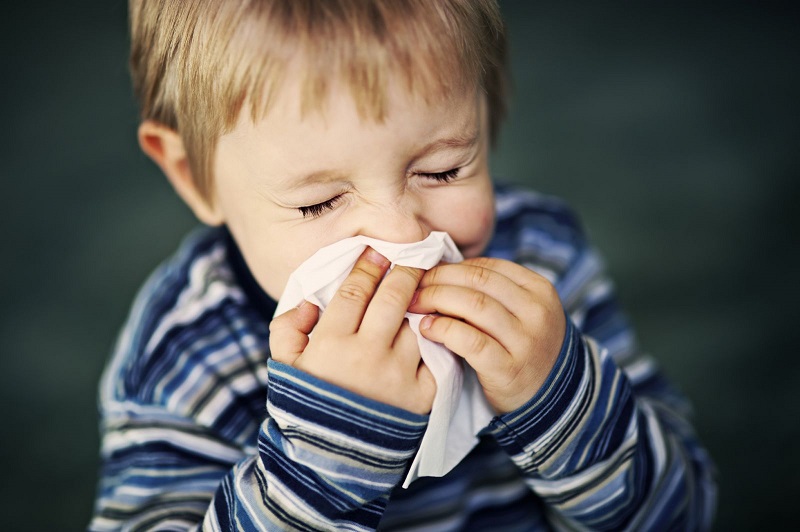Upper respiratory tract infections (URTIs) are among the most common illnesses affecting people of all ages, occurring throughout the year but especially during seasonal changes and colder months. While typically not serious, these infections can lower quality of life and spread easily within communities. A proactive approach to health particularly through lifestyle adjustments plays a vital role in strengthening the immune system and preventing upper respiratory tract infections effectively.
1. What Are Upper Respiratory Tract Infections?
Upper respiratory tract infections involve inflammation or infection of structures in the upper respiratory system, including the nose, sinuses, throat (pharynx), and voice box (larynx). These parts act as entryways for air and help warm, moisten, and filter it before it reaches the lungs.
Due to their direct exposure to the external environment, these structures are vulnerable to pathogens like viruses, bacteria, or fungi. Among them, viruses such as influenza, rhinovirus, and coronavirus are the most common cause of URTIs.
When inflammation occurs, airflow to the lungs may become restricted, impairing breathing and overall well-being. Depending on the location of the infection, conditions may be diagnosed as sinusitis, pharyngitis, laryngitis, or bronchitis. These infections tend to recur and are more prevalent in autumn and winter.

Upper respiratory tract infections involve inflammation or infection of the upper airway structures.
2. Daily Habits and Lifestyle for Preventing Upper Respiratory Tract Infections
Adopting healthy habits can reduce the frequency and severity of URTIs, support faster recovery, and limit their spread.
2.1. Lifestyle Modifications
– Follow all prescribed treatments and medical advice from healthcare professionals.
– Stay mentally positive and manage stress through relaxation techniques and engaging activities.
– Inform medical staff of any unusual symptoms during treatment.
– Schedule regular health check-ups to detect infections early and adjust treatment if needed
– Engage in stress-reducing activities such as talking to loved ones, reading, or caring for pets.
– When experiencing a sore throat or cough, limit speaking to prevent further irritation.
– Use saline nasal drops to clear nasal passages.
– Cover your mouth and nose when sneezing or coughing to prevent spreading germs.
– Avoid swimming if you have sinusitis or nasal inflammation until symptoms resolve.
– Get adequate rest and light exercise to support recovery.
2.2. Nutrition and Personal Care
– Stay well-hydrated with warm water or fresh juice to soothe the throat and support immunity.
– Avoid alcohol, as it can aggravate inflammation and damage the respiratory lining.
– Consider probiotics or yogurt to maintain gut health, particularly when using antibiotics.
2.3. Practical Measures for Preventing Upper Respiratory Tract Infections
– Maintain personal hygiene: wash hands with soap before meals and after contact with shared surfaces.
– Wear a mask in crowded or polluted environments.
– Avoid exposure to harmful substances like smoke, dust, and chemicals.
– Quit smoking (including e-cigarettes) to protect respiratory health.
– Balance work and rest; ensure adequate sleep to restore immune function.
– Exercise regularly to strengthen the immune system and improve lung function.
– Get vaccinated annually against influenza and pneumonia as advised by healthcare providers.

Stay well-hydrated with warm water or fruit juices to soothe the throat and boost immunity.
3. Common Causes of Upper Respiratory Infections
3.1. Bacteria
Certain bacteria, such as Haemophilus influenzae, Streptococcus pneumoniae, and Staphylococcus aureus, can reside in the respiratory tract or enter from the external environment. Under favorable conditions, these bacteria cause acute or chronic infections.
3.2. Viruses
Viruses are the leading cause of URTIs in both children and adults. Common culprits include influenza viruses, parainfluenza, rhinoviruses, RSV (respiratory syncytial virus), adenovirus, and various coronaviruses. These viruses spread rapidly, particularly in crowded areas or during cold weather.
3.3. Environmental and Lifestyle Factors
– Drinking cold or unsanitary beverages.
– Allergies to pollen, dust, animal dander, or chemicals.
– Living in poorly ventilated, humid, or polluted environments.
These conditions compromise the mucosal barrier of the respiratory tract, increasing susceptibility to infection.

Pollen allergies are also a trigger for respiratory infections.
3.4. Modes of Transmission
URTIs are highly contagious and can spread via:
– Droplets: Released into the air when an infected person coughs, sneezes, or talks.
– Indirect contact: Touching contaminated surfaces (like door handles or tissues) and then touching the nose, mouth, or eyes.
Protecting your respiratory health involves more than just treating symptoms. It starts with daily preventive habits. Embracing a healthy, mindful lifestyle and minimizing exposure to known risk factors are key to preventing upper respiratory tract infections. Don’t wait until symptoms arise. Take action now to safeguard your health and that of your loved ones.








